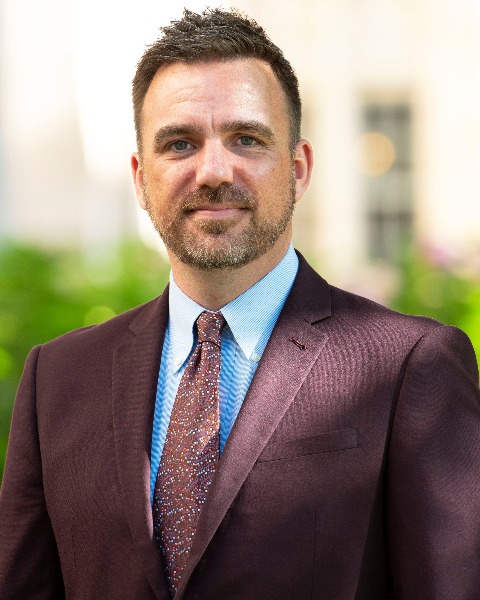Back
Cultural Competence
Student Engagement
Engaging Student Reflexivity to Challenge Bias and Increase Competence for Practice with Sexually-Diverse Clients
Saturday, November 12, 2022
3:00 PM – 3:30 PM
Location: San Clemente

Adrian J. Ballard, MSW, LCSW
PhD Candidate and Teaching Fellow
University of Pittsburgh School of Social Work
Pittsburgh, Pennsylvania, United States
Author and Presenter(s)
Overview: A self-reflection exercise was developed for use in a human sexuality elective to facilitate social work students’ examination of biases toward and expand awareness of a range of sexual identities, relationships, and behaviors. Initial feedback from students and instructors and evolution of the exercise over multiple semesters will be presented.Proposal text: Professional ethics and educational standards stipulate that competent social work practice entails self-awareness and self-regulation of one’s own biases and values (CSWE, 2015; NASW, 2021). Like the broader profession, social work education has historically overlooked the significance of sexual dimensions of clients’ experiences (Dodd & Tolman, 2017; Dunk, 2007), with certain exceptions like sexual orientation, reproductive justice, and sexual violence. Recent calls for sex-positive social work (Dodd, 2020; Dodd & Tolman, 2017; Williams et al., 2016) suggest that a greater knowledge of sexuality’s role in clients’ lives, as well as emergent variations in sexual identities and behaviors, is needed in order for social workers to engage in effective, ethical practice with sexually diverse clients.
To facilitate social work students’ self-awareness of their biases and limitations in knowledge about diverse sexual identities and behaviors, a self-reflection exercise was developed for a Master’s-level human sexuality elective. The purpose and intended outcomes of the exercise include skill-development in self-reflection/-regulation, increased knowledge of client diversity, and experience engaging in conversations on topics that may be uncomfortable yet likely to arise in client-centered practice with diverse populations.
The activity entails 3 steps: (1) Student completion of a questionnaire early in the course, outside of class, in which they are asked to consider their opinions, knowledge, and sense of competence regarding a variety of sexualities, varying in obscurity and controversy; (2) Writing a reflexive essay about their reactions to the questionnaire and any surprises that emerged about themselves or the example sexualities; (3) Class discussion about students’ responses to the questionnaire and reactions to the experience; and (4) Late in the course, a follow-up reflexive essay exploring whether—and if so, how—their learning in the course impacted the personal and/or professional views articulated in the questionnaire and initial essay.
The exercise has been used and has evolved across multiple academic terms. Student response has been overwhelmingly positive, and enthusiastic input about ways of making it even more effective have been incorporated, as feasible and appropriate. In this session, an overview of the questionnaire and examples of questions it contains will be provided. The evolution of the exercise, changes made based on student and instructor feedback, and future directions for further development will be discussed. An opportunity for attendees to self-reflect on their own responses to a questionnaire item will be offered for illustrative purposes. Finally, the usefulness of the exercise for teaching reflexivity in the social work curriculum beyond sexuality-specific courses will be explored.
To facilitate social work students’ self-awareness of their biases and limitations in knowledge about diverse sexual identities and behaviors, a self-reflection exercise was developed for a Master’s-level human sexuality elective. The purpose and intended outcomes of the exercise include skill-development in self-reflection/-regulation, increased knowledge of client diversity, and experience engaging in conversations on topics that may be uncomfortable yet likely to arise in client-centered practice with diverse populations.
The activity entails 3 steps: (1) Student completion of a questionnaire early in the course, outside of class, in which they are asked to consider their opinions, knowledge, and sense of competence regarding a variety of sexualities, varying in obscurity and controversy; (2) Writing a reflexive essay about their reactions to the questionnaire and any surprises that emerged about themselves or the example sexualities; (3) Class discussion about students’ responses to the questionnaire and reactions to the experience; and (4) Late in the course, a follow-up reflexive essay exploring whether—and if so, how—their learning in the course impacted the personal and/or professional views articulated in the questionnaire and initial essay.
The exercise has been used and has evolved across multiple academic terms. Student response has been overwhelmingly positive, and enthusiastic input about ways of making it even more effective have been incorporated, as feasible and appropriate. In this session, an overview of the questionnaire and examples of questions it contains will be provided. The evolution of the exercise, changes made based on student and instructor feedback, and future directions for further development will be discussed. An opportunity for attendees to self-reflect on their own responses to a questionnaire item will be offered for illustrative purposes. Finally, the usefulness of the exercise for teaching reflexivity in the social work curriculum beyond sexuality-specific courses will be explored.
Learning Objectives:
- Evaluate strengths and weaknesses of a learning activity designed to engage students in self-reflection regarding biases and limitations in knowledge about diverse sexualities.
- Reflect on their own responses to an example activity drawn from the exercise being presented.
- Consider the potential utility of the activity for teaching essential social work skills such as self-reflection, self-regulation, and competence-building throughout the social work curriculum.
